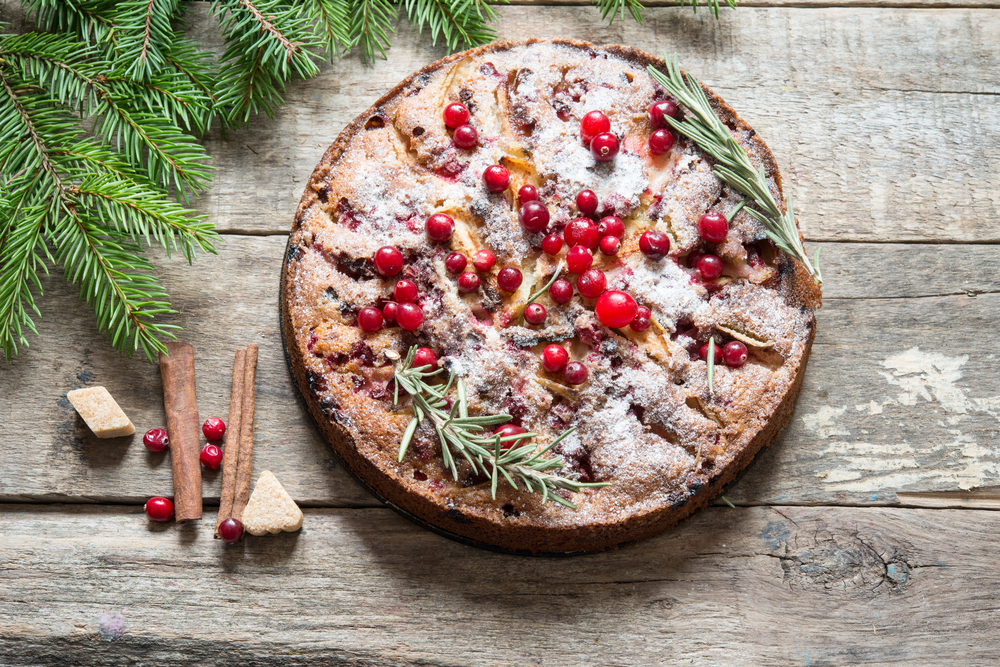
Fruitcake.
It’s either loved or hated; there is rarely an indifferent opinion. Many people see this as a cloyingly sweet confection that is dense and hard enough to break a truck windshield. Just seeing the little plastic containers of the candied fruit mix in the grocer’s produce section can turn the stomachs of those who are not a fan.
To this segment of the American public, fruitcake is sort of like the singer in a choir whose voice brings cacophony to the score, but because it persists as a part of the dessert table every Christmas, it’s like the other choir members and director just can’t muster the guts to tell it that its flavor and level of sweetness is the equivalent of a banshee’s scream.
On the other hand, those who love fruitcake REALLY love it! They would say it’s ambrosia from the gods or “baked from Eve’s very oven”.
So much humor is associated with this traditional holiday sweet. No other food gets the same rap or has so much unexplained significance and folklore surrounding it. One peculiar legend says that if you sleep with a fruitcake under your pillow, you’ll dream of your true love.
This heavy, sweet cake decked out in bourbon, nuts and fruit is believed by some to be as old as ancient Egypt…literally, archaeologists claim that fruitcake remains have been found in Egyptian tombs and are still edible. Why they chose fruitcake as a tribute to their dead, we may never really know.
However, the general consensus is that fruitcake originated in ancient Rome in a healthier form than is customary today. Barley, pomegranate seeds, nuts and raisins were combined to make this version of fruitcake, but the recipe closest to what we are familiar with today came from medieval days.
People in countries all over Europe made their own versions of fruitcake throughout the centuries. Despite all the negative press assigned to this rich, sweet cake, the beauty of it is that you can take your pick which version you want to try, whether it’s stollen from Germany or panforte from Italy. Because there are many varieties of fruitcakes in the world, we could consider fruitcake a stock term for any cake containing a mixture of fruit and nuts.
Fruitcakes are one of the most recycled gifts; they are number 8 in the list of the most re-gifted presents. This passing of the fruitcake is much like a game of duck duck goose! The cake goes around until it lands with someone who actually eats it. They are so well preserved with alcohol that it makes sense that they could last year after year, which also begs for the word of archaeologists who claim to have found fruitcake remains in ancient Egyptian burial tombs.
In the 18th and 19th centuries, fruitcakes became a tradition gift for celebrations, including weddings, but how it came to be a Christmas treat is unknown. In the early 20th century, mail order fruitcakes may have been the downfall of their popularity. Perhaps the small batch, homemade flavor is essential to make a good fruitcake, and the mass produced recipes just couldn’t interest the palate of fruitcake lovers.
While fruitcake aficionados look forward to the dark, sugary, rich mix of fruit and nuts in a loaf or bundt, others see it as just another one of the Christmas decorations that they wouldn’t dare eat. Fruitcake, like it or not, is just part of Christmas tradition. As Marcel Jackson, a fruitcake baker at Baker Maid in New Orleans put it, “Yea, it feels like Christmas, but it can’t be Christmas without fruitcake.”

